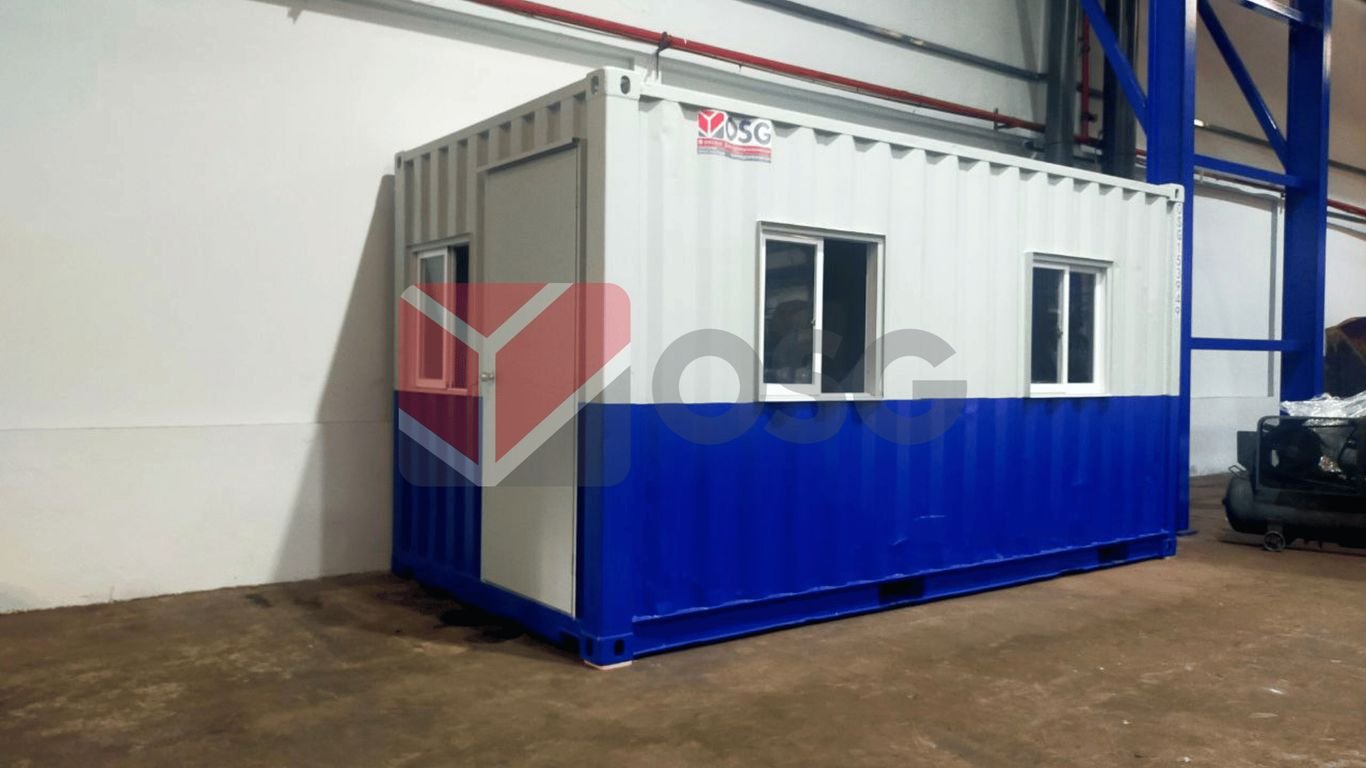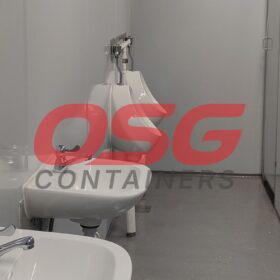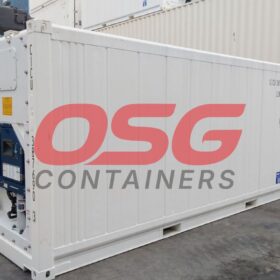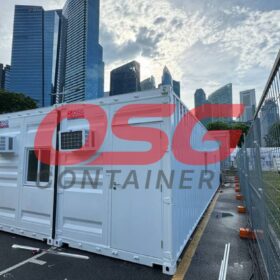Need a workspace that can keep up with your business? Forget about those slow, expensive traditional buildings. We’re talking about office containers, which are basically old shipping containers turned into functional offices. They’re popping up everywhere because they’re quick to set up, easy to move, and don’t cost a fortune. Whether you need a temporary spot for a project or a more permanent setup, these container offices are changing the game for how and where we work.
Key Takeaways
- Office containers are repurposed shipping containers made into workspaces, offering a flexible and affordable alternative to traditional offices.
- They are quick to set up, durable, and can be moved easily, making them ideal for temporary or changing work needs.
- Businesses can customize these units with amenities like electricity, climate control, and specific layouts to suit their requirements.
- Using office containers is a sustainable choice, as it involves reusing materials and reducing construction waste.
- These modular spaces can improve productivity and coordination on-site by providing a central, comfortable, and secure work environment.
Understanding Office Containers
So, what exactly are these office containers we keep hearing about? Basically, they’re repurposed shipping containers, the big metal boxes you see on cargo ships and trains. Instead of just sitting around after their shipping days are done, they get a new life as functional workspaces. These aren’t just basic shells; they’re transformed into fully equipped offices. Think of them as modular building blocks for your business needs.
What Constitutes an Office Container?
An office container is essentially a modified shipping container, built to ISO standards, that’s been outfitted to serve as a place to work. They’re made of sturdy steel, which means they can handle pretty rough conditions and are quite secure. You can get them in standard sizes, like 20-foot or 40-foot lengths, and they can even be taller if you need more headroom (those are called High Cube containers).
The Core Advantages of Office Containers
Why would a business choose a container office over a traditional building? Well, there are a few big reasons:
- Speed: They can be set up much faster than conventional construction. You can get a functional office space ready in weeks, not months.
- Mobility: Need to move your office to a new project site? No problem. These containers can be transported relatively easily.
- Cost: Generally, they’re a more budget-friendly option compared to building from scratch or renting traditional office space.
- Durability: That steel construction isn’t just for show; it makes them tough and long-lasting.
Key Benefits for Businesses
Using containers as offices offers a lot of practical perks for companies. They’re a smart choice for businesses that need flexibility and quick deployment. For instance, construction companies often use them as site offices because they can be moved from one job location to another. They’re also great for businesses that experience rapid growth and need extra space without the hassle of a major construction project. Plus, repurposing these containers is a good way to be more environmentally friendly, which is something many companies are looking for these days.
The adaptability of these units means they can be configured for a wide range of uses, from simple individual offices to larger, multi-unit complexes. This flexibility allows businesses to scale their workspace up or down as needed, responding quickly to changing operational demands.
Here’s a quick look at some common container types used for offices:
| Container Type | Typical Sizes | Key Features |
|---|---|---|
| Standard Dry Van | 20ft, 40ft | Basic steel structure, double doors at one end |
| High Cube | 20ft, 40ft | Standard size plus extra height for more room |
| Open-Side | 20ft, 40ft | Full side opening for easy access and ventilation |
| Tunnel Container | 20ft, 40ft | Doors on both ends for drive-through access |
Versatile Applications of Office Containers
Office containers are surprisingly adaptable, fitting into all sorts of business needs. They’re not just for construction sites anymore, though they’re definitely a big help there. Think about it: you need a place to manage a big building project, coordinate engineers, or just handle the paperwork. A sturdy, ready-to-go office container is perfect for that. It gets you set up fast, so you can focus on the actual work.
Temporary Workspaces for Projects
When you’ve got a project with a defined timeline, building a permanent office just doesn’t make sense. That’s where container rentals shine. You can get a fully functional office space delivered and set up quickly, whether it’s for a few months or a couple of years. This means less hassle and more budget for the core project. They’re great for managing remote operations too, like in the energy or mining sectors where sites can be pretty far out.
Remote Work Hubs and Pop-Up Shops
With more people working from home, there’s a growing need for quiet spots outside the house. Office containers can be turned into neighborhood co-working spaces or private work pods. They offer a focused environment away from household distractions. Retailers are also catching on, using them as pop-up shops. Imagine setting up a temporary store at a festival, a busy market, or even just to test a new location. They’re easy to move and set up, making them ideal for short-term retail ventures.
Scalable Solutions for Growing Businesses
Businesses that are expanding often hit a wall with their current office space. Instead of a costly and time-consuming renovation or relocation, containers offer a straightforward solution. You can add more units as your team grows, connecting them to create larger office complexes. This modular approach means you only pay for the space you need, when you need it. It’s a smart way to manage growth without disrupting your operations.
The flexibility of these units means you can adapt your workspace on the fly, responding to changing project demands or market opportunities without significant delays or capital investment.
Here’s a quick look at how they stack up:
- Project Management: Centralized office for site supervisors and admin staff.
- Remote Operations: Reliable workspace in isolated or challenging environments.
- Retail Testing: Low-risk way to trial new market locations.
- Team Expansion: Add space quickly without major construction.
These adaptable spaces are changing how we think about work environments, offering practical solutions for a wide range of business challenges. You can find out more about 20ft shipping container offices and their benefits.
Customization and Configuration Options
One of the biggest draws of using office containers is how much you can tweak them to fit exactly what you need. They’re not just basic boxes; they’re like a blank canvas for your workspace. You can really make them your own, whether you need a quiet place to focus or a bustling hub for your team.
Tailoring Spaces for Specific Needs
Think of a container office as a modular building block. You can set them up in all sorts of ways. Need a private office for the project manager and a separate area for meetings? No problem. You can add walls and partitions to create distinct zones. This flexibility means you can design a layout that makes sense for your workflow, avoiding that cramped feeling you sometimes get in traditional offices. It’s all about making the space work for you, not the other way around. We’ve seen them used for everything from simple site offices to more complex setups with separate areas for admin and technical staff.
Integrating Essential Amenities
Beyond just walls and doors, you can equip these containers with all the comforts and necessities of a modern office. This includes things like proper insulation to keep the temperature steady, whether it’s hot or cold outside. You can also get HVAC systems installed, so everyone stays comfortable. Lighting is another big one; you can add plenty of natural light with windows, or go with good artificial lighting for those darker days. Plus, you can add basic facilities like sinks or even small break areas. It’s about creating a functional and pleasant environment, not just a temporary shelter. Many companies focus on effective insulation and climate control to make sure the space is usable year-round.
Expanding and Connecting Modular Units
What’s really neat is that you’re not limited to just one container. If your team grows or your project needs more space, you can simply add more units. These containers can be connected side-by-side or even stacked to create multi-story offices. This makes them incredibly scalable. Starting with a single unit for a small team and then expanding to a larger complex as needed is totally doable. It’s a smart way to manage your workspace needs without the hassle of moving to a new, permanent building. This modular approach is a key reason why container offices are so adaptable.
The ability to connect multiple units allows for a truly custom setup, letting you build out a workspace that perfectly matches your operational requirements, no matter how complex they might be.
| Feature | Description |
|---|---|
| Partitioning | Internal walls to create separate rooms |
| HVAC | Heating, Ventilation, and Air Conditioning |
| Electrical | Wiring, outlets, and lighting fixtures |
| Plumbing | Sinks, basic restrooms, water connections |
| Insulation | For temperature regulation and sound dampening |
| Windows & Doors | For light, ventilation, and access |
The Economic and Environmental Edge
Cost-Effective Alternatives
Let’s be real, building a traditional office space from scratch can really drain your budget. That’s where office containers shine. They’re built using repurposed shipping containers, which already have a solid structure. This means you skip a lot of the expensive groundwork and material costs associated with conventional construction. Think about it: you get a durable, ready-to-go workspace without the massive upfront investment. Plus, the speed of deployment means you’re operational much faster, saving you money on project delays. It’s a smart way to get a professional setup without breaking the bank. Many companies find that renting a container office is a great way to start, with options often beginning around $700 a month for a basic 20-foot unit, complete with lighting and climate control. For those needing something more specific, custom builds are available, though lead times can stretch a bit longer.
Sustainable and Eco-Friendly Practices
Going green is more than just a buzzword these days; it’s a business imperative. Using old shipping containers is a fantastic way to reduce waste. Instead of these containers sitting idle or being scrapped, they get a new life as functional offices. This reuse cuts down on the demand for new raw materials, which in turn lowers the carbon footprint of your project. Many container providers also offer options for integrating solar panels, further reducing reliance on grid power. It’s a tangible way to show your commitment to environmental responsibility. This approach aligns with a growing need for earth-friendly answers in all sectors.
Long-Term Financial Savings
Beyond the initial cost savings, office containers offer benefits that keep paying off over time. Their robust steel construction means they’re built to last, even in tough conditions, reducing maintenance costs. Because they’re modular, you can easily adapt them as your needs change – add more units or relocate them without the hassle and expense of traditional building modifications. This flexibility means you’re not locked into a space that quickly becomes unsuitable. The ability to easily move and reconfigure these units makes them a truly adaptable asset for any business.
The inherent durability of steel containers means they can withstand various weather conditions and heavy use, often requiring less upkeep than conventional structures. This translates to lower long-term maintenance expenses and a more predictable operational budget.
Here’s a quick look at how they stack up:
- Initial Cost: Significantly lower than traditional builds.
- Deployment Speed: Faster setup means quicker revenue generation.
- Maintenance: Reduced upkeep due to durable steel construction.
- Adaptability: Easy to modify, expand, or relocate, avoiding costly renovations.
When you consider the total cost of ownership, from purchase or rental to ongoing upkeep and potential future modifications, office containers present a compelling financial case. They offer a practical and economical substitute for conventional office environments, allowing businesses to allocate resources more effectively. For instance, a twenty-foot container can be a great starting point for a mobile workspace, offering both durability and portability.
Enhancing Productivity and Site Operations
Having a solid base of operations on any job site isn’t just about having a place to sit; it’s about making sure everyone can do their best work. Container offices really shine here, acting as a central point that can make a big difference in how smoothly things run.
Improving Communication and Coordination
Think about it: a dedicated space means everyone’s on the same page. Project managers, site supervisors, and even the crew can gather in one spot to go over plans, check progress, and sort out any issues. This kind of central hub cuts down on confusion and makes collaboration much easier. It’s like having a command center right where the action is. For companies looking for these kinds of adaptable spaces, exploring options for portable site offices can be a smart move.
Boosting Worker Comfort and Morale
Let’s be real, working on a site can be tough. Providing a comfortable break area, complete with climate control and a clean place to eat, can seriously lift spirits. When workers feel looked after, they’re generally happier and more productive. It’s a simple equation: comfort leads to better focus and less downtime. A well-equipped container can serve as that much-needed respite.
Ensuring Safety and Organization
Keeping important documents, tools, and equipment secure is a big deal. A sturdy container office offers a safe place for all of it, reducing the risk of theft or damage. Plus, holding daily briefings or toolbox talks in a designated area helps make sure everyone knows the plan for the day, which is key for keeping the site running safely and efficiently. It helps keep everything tidy and accounted for.
A well-organized and comfortable on-site office directly impacts the efficiency and safety of project execution. It serves as a focal point for communication and a sanctuary for workers, contributing to overall project success.
Here’s a quick look at how these spaces help:
- Centralized Planning: A single point for reviewing blueprints and project timelines.
- Improved Communication: Facilitates quick meetings and problem-solving.
- Secure Storage: Protects valuable tools, equipment, and sensitive documents.
- Worker Welfare: Provides a comfortable environment for breaks and rest.
When you’re looking at setting up your next project site, don’t overlook the impact a good office container can have. It’s more than just a temporary structure; it’s an investment in your team and your project’s success. You can even find providers who specialize in custom container solutions to fit your exact needs.
Choosing the Right Office Container
So, you’ve decided that office containers are the way to go for your business. That’s great! But with so many options out there, how do you pick the one that actually fits your needs? It’s not as simple as just grabbing any old box. You need to think about what you’ll be using it for and what kind of environment you’re working in.
Exploring Different Container Types
Not all containers are created equal, and knowing the differences can save you a lot of hassle. Most people think of the standard shipping container, but there are variations. You’ve got your regular dry van containers, which are pretty common and come in sizes like 20ft and 40ft. These are usually fine for basic office setups. Then there are High Cube containers. Think of these as the standard ones, but with an extra foot of height. That extra space can make a big difference if you need a bit more headroom or plan to install taller equipment.
Beyond those, there are specialty containers. While you might not need something like an iso container tank for an office, some specialized units, like open-side containers, can offer more flexible access. It’s worth looking into what’s available, but remember that specialized usually means a higher price tag.
Partnering with Specialized Providers
Trying to figure all this out on your own can be a headache. That’s why working with a company that really knows their stuff is a good idea. They can guide you through the different container types and help you figure out what’s best for your specific situation. For instance, if you need a workspace that can handle temperature-sensitive materials or requires a controlled environment, you might look into options similar to a refrigerated container, even if it’s just for insulation purposes. A good provider will have a range of choices and can offer expert advice to help you find the perfect fit. They can also help with the logistics of delivery and setup, which is a big plus.
The Importance of Quality and Standards
When you’re looking at containers, don’t just go for the cheapest option. You need to think about quality and what standards the container meets. A container that’s built well will last longer and be more comfortable to work in. Look for containers that are made from sturdy materials and have been properly inspected. It’s also important to consider how the container has been modified. Were the modifications done professionally? Are the electrical and plumbing systems up to code?
Making sure your container office is built to last and meets safety standards is key. It’s an investment, and you want it to serve your business well for years to come, providing a reliable and comfortable workspace.
When you’re comparing providers, ask about their build process and what kind of warranties they offer. This will give you a better idea of the quality you can expect. Finding a reliable provider means you can focus on using your new office space, rather than worrying about whether it’s going to hold up. You can explore options from companies that specialize in these kinds of portable container offices to get a sense of the market.
Wrapping Up: Your Next Workspace Solution
So, we’ve looked at how office containers are changing the game for businesses needing flexible and affordable workspaces. They’re quick to set up, can be moved around easily, and you can really make them your own. Whether you need a temporary spot for a project, a place to work away from home, or just more room for your growing team, these container offices are a smart choice. They offer a practical way to get the space you need without a lot of hassle or a huge price tag. Think about giving them a try for your next office setup – you might be surprised at how well they work.
Frequently Asked Questions
What exactly is an office container?
An office container is basically a big metal box, like the ones used to ship things, that’s been changed into a place to work. They’re strong, can be moved around easily, and are set up pretty fast. Think of it as a ready-made office that can go wherever you need it.
Why are these containers good for businesses?
They’re great because they’re way cheaper than building a regular office. Plus, you can move them from one job site to another, which is super handy. They can also be made bigger by connecting them, so they grow with your business.
Can I make an office container look and feel how I want?
Absolutely! You can add things like air conditioning, heating, lights, desks, and even meeting areas. Businesses can paint them, add windows, and arrange the inside to make it a really nice place to work.
Are these containers good for the environment?
Yes, they are! Using old shipping containers means less waste. It’s like recycling a giant metal box and giving it a new purpose, which is much better for the planet than building something new from scratch.
How quickly can I get an office container set up?
Much faster than a traditional building! Since they’re mostly built in a factory, they can be delivered and ready to use in just a few days. This means your team can start working in their new space almost right away.
What are some common ways businesses use these containers?
Businesses use them for all sorts of things! They’re perfect for temporary offices on construction sites, as quiet places for people working from home to focus, or even as small shops that can pop up at events or busy locations.
 Singapore
Singapore Australia
Australia Indonesia
Indonesia Japan
Japan Malaysia
Malaysia New Zealand
New Zealand Philippines
Philippines South Korea
South Korea Taiwan
Taiwan Thailand
Thailand VIETNAM
VIETNAM




